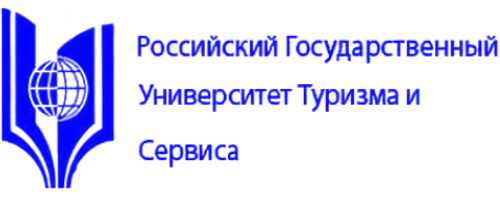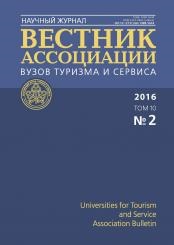Penza, Russian Federation
This article deals with the issues of identification of the demand for training the personnel for the Moscow region tourism industry. The range of issues raised in the article covers (1) the causes of the trained personnel shortage in the region; (2) the employers’ general approaches to candidates’ applications processing; (3) the current and expected enrollment in Tourism- and Hospitality-related training programmes; and (4) the creation of forecast scenarios of Moscow region tourism industry development, which vividly demonstrate a growing demand for personnel. The article focuses on the evaluation methodology of the demand for the tourism industry personnel and its approbation in a number of Moscow-region-based municipal entities. The evaluation methodology is based on the trend analysis of the tourism industry development indices, strategic and standard-and-goal programming, the multiplier theory, extrapolative and scenario forecasting. The strategic guidelines for Moscow region tourism industry development correspond to the performance targets of the development of domestic and inbound tourism in the Moscow region in effect until 2018: a twofold increase in the number of tourists using collective accommodation facilities, a 30% increase in the tourist companies’ customership, up to a 4-% increase in the number of foreign tourists using collective accommodation facilities, etc. The application of the methodology developed by the authors of the article allows of the conclusion that, for the innovative development scenario, the number of jobs in the Moscow region tourism industry should have reached 6,000 by 2018. The methodology can be applied to assess the current and expected demand for personnel as observed in a variety of business domains in different regions of the Russian Federation.
demand for personnel, personnel training, tourism, service, hospitality, Moscow region.
Введение
Одной из основных проблем, отмеченной в областной целевой программе «Развитие индустрии туризма в Московской области на 2012–2015 гг.» и долгосрочной целевой программе «Формирование туристской инфраструктуры и развитие туризма в Московской области на 2013–2018 гг.» в качестве сдерживающей для индустрии туризма, является сохраняющийся дефицит квалифицированных кадров всех уровней обучения.
Как показал опрос работодателей в сфере туризма Московской области в рамках проекта TEMPUS NETOUR, проведенный при непосредственном участии авторов данной статьи в сентябре 2013 г., большинство из них испытывают реальную потребность в кадрах (рис. 1).
Как видно из приведенной на рис. 1 диаграммы, регулярно нуждаются в кадрах 93% респондентов. И только 7% опрошенных работодателей не испытывают потребности в новых сотрудниках.
Дефицит квалифицированных кадров в индустрии туризма Московской области объясняется рядом причин. Одна из основных — это ежегодный рост индустрии туризма в регионе. С точки зрения теории жизненного цикла отраслей экономики индустрия туризма Московской области, как и Российской Федерации в целом, находится на стадии роста, что характерисуется увеличением объема реализации услуг, значительно превышающим годовой уровень инфляции, ростом числа хозяйствующих субъектов, освоением новых рынков и т. п.
Подготовка кадров для индустрии туризма начата в нашей стане сравнительно недавно, поэтому потребность в кадрах нередко замещалась неквалифицированными специалистами, пришедшими в туризм из других отаслей, зачастую с ним несмежных. Отсутствие необходимых знаний и навыков не может не сказаться и на качестве предоставляемых услуг. Поэтому работадателям приходится затрачивать немалые средства на переподготовку и повышение квалификации кадров. Как показал опрос, 50% работодателей направляют персонал на обучение без отрыва от производства, 31% — с отрывом от производства. Затраты на переобучение персонала распределяются следующим образом (рис. 2).
1. Federal’naia sluzhba gosudarvennoi statistiki [Russian Federation Federal State Statistics Service]. URL: http://www.gks.ru.
2. Federal’naia sluzhba gosudarvennoi statistiki po Moskovskoi oblasti [Moscow Region Federal State Statistics Service]. URL: http://msko.gks.ru.
3. Platonova, N. A., Bushueva, I. V., Krivosheeva, T. M., and Kharitonova, T. V. Monitoring kontrolia i otsenki kachestva obrazovaniia: monografiia [Educational quality control and assessment monitoring: monograph]. Moscow: FGBOU VPO «RGUTiS» Publ., 2013
4. Fedulin, A. A., Platonova, N. A., Krivosheeva, T. M., and Kharitonova, T. V. Praktika vnedreniia obshchestvennogo monitoring kontrolia i kachestva obrazovaniia: monografiia [Practical implementation of community monitoring of educational quality control and assessment]. Moscow: FGBOU VPO «RGUTiS» Publ., 2013
5. Zaitseva, N. A. Upravlenie chelovecheskimi resursami v organizatsii turizma i gostepriimstva. Materialy konferentsii «Professional’noe obrazovanie v sfere turizma kak uslovie povysheniia kachestva turistskikh uslug [Human resources management intourism and hospitality organization. In proceedings of the conference on tourism-oriented professional training as a contributor to tourist service quality improvement], Pp. 143-149.
6. Fedulin, A. Sakharchuk, E. Ilkevich, S., 2014. Moscow regional education cluster in tourism and services: a new sustainable development paradigm. World Applied Science journal (Special issue, March 2014), pp.: 123-125





